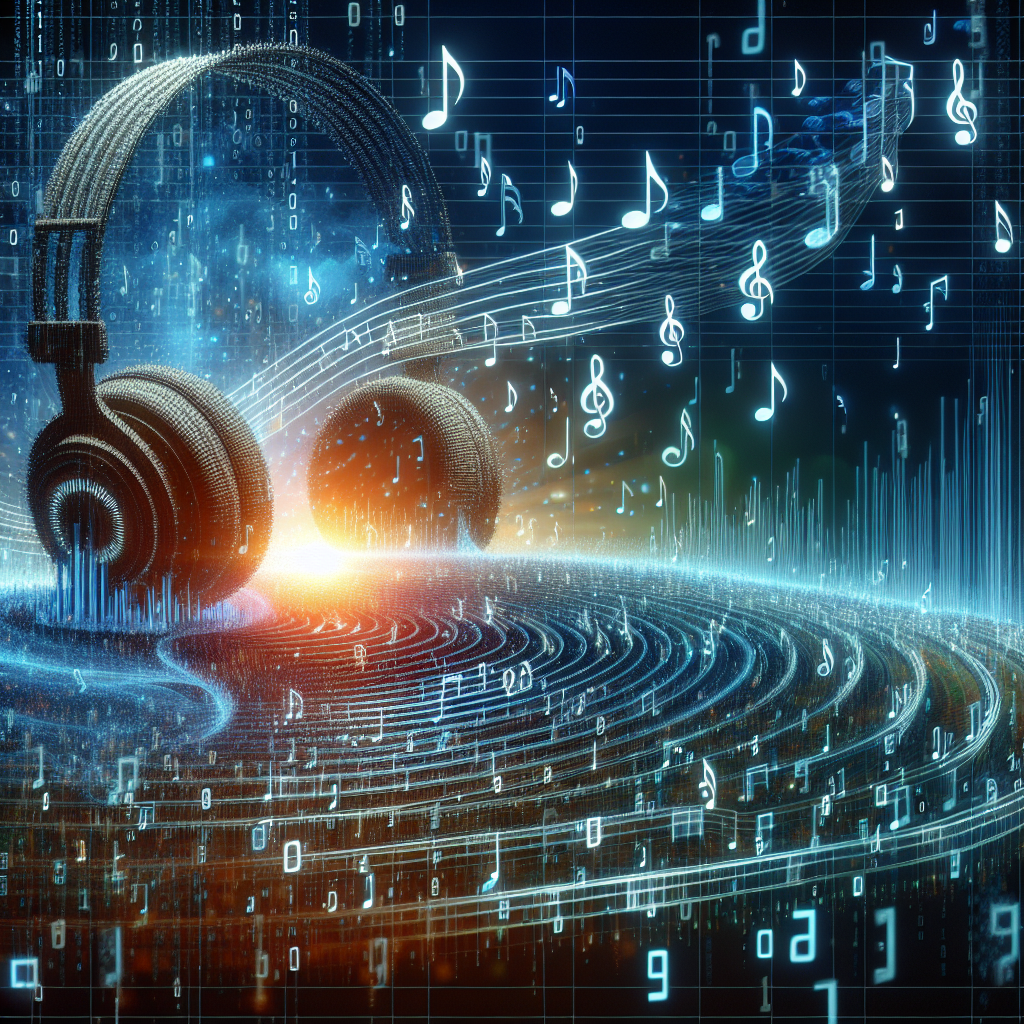Artificial Intelligence (AI) has been transforming various industries in recent years, and the music industry is no exception. From music creation to distribution and consumption, AI technology is revolutionizing the way music is made, discovered, and enjoyed by listeners around the world. In this article, we will explore how AI is changing the landscape of the music industry and what the future holds for this exciting intersection of technology and creativity.
AI in Music Creation
One of the most significant impacts of AI on the music industry is in the realm of music creation. AI algorithms are now capable of composing music, writing lyrics, and even producing entire songs without any human intervention. This technology is being used by musicians, producers, and composers to speed up the creative process and explore new musical possibilities.
One of the most well-known AI music creation tools is Amper Music, a platform that uses AI to generate custom music tracks based on user input. Users can specify the mood, tempo, and style of the music they want, and the AI algorithm will create a unique composition tailored to their preferences. This technology has been embraced by musicians and content creators who need high-quality music for their projects but may not have the time or resources to compose it themselves.
AI is also being used in the production process to enhance the sound quality of recordings. Companies like LANDR and AI Mastering offer AI-powered mastering services that can analyze audio tracks and apply professional-grade processing to optimize the sound. This technology allows musicians to achieve a polished, professional sound without the need for expensive studio equipment or a team of engineers.
AI in Music Discovery
Another area where AI is revolutionizing the music industry is in music discovery. With the vast amount of music available online, it can be overwhelming for listeners to find new artists and songs that match their tastes. AI-powered recommendation algorithms are helping to solve this problem by analyzing listener data and providing personalized recommendations based on their listening habits.
Streaming platforms like Spotify and Apple Music use AI algorithms to create personalized playlists for users, suggesting new music based on their listening history and preferences. These recommendations help listeners discover new artists and genres that they may not have found on their own, leading to a more diverse and engaging music listening experience.
AI is also being used to analyze music trends and predict which songs are likely to become hits. Companies like Hit Songs Deconstructed use AI algorithms to analyze the musical characteristics of popular songs and identify patterns that contribute to their success. This data can be valuable for record labels, artists, and producers who want to understand what makes a hit song and replicate that success in their own music.
AI in Music Distribution
In addition to music creation and discovery, AI is also transforming the way music is distributed and marketed to listeners. Digital platforms like YouTube and SoundCloud use AI algorithms to detect copyright violations and ensure that artists are properly compensated for their work. This technology helps to protect intellectual property rights and prevent piracy, ensuring that musicians receive fair compensation for their music.
AI is also being used in marketing and promotion to target audiences more effectively. Record labels and artists can use AI-powered analytics tools to analyze listener data and create targeted advertising campaigns that reach the right audience at the right time. This technology helps to increase the visibility of new releases and drive engagement with fans, ultimately leading to more streams and downloads for the artist.
The Future of AI in the Music Industry
As AI technology continues to evolve, the possibilities for its application in the music industry are endless. From personalized music recommendations to AI-generated compositions, the future of music creation, distribution, and consumption is being shaped by AI in ways that were previously unimaginable.
One exciting development on the horizon is the use of AI in live music performances. Artists like Taryn Southern and Kiesza have already incorporated AI technology into their live shows, using AI-generated visuals and interactive elements to enhance the audience experience. As AI becomes more sophisticated, we can expect to see even more innovative uses of this technology in live performances, blurring the lines between human creativity and artificial intelligence.
FAQs
Q: Will AI replace human musicians in the music industry?
A: While AI technology is capable of composing music and producing songs, it is unlikely to completely replace human musicians in the music industry. AI is a tool that can enhance the creative process and help musicians explore new possibilities, but ultimately, human creativity and emotion are irreplaceable in music making.
Q: How can musicians benefit from AI technology?
A: Musicians can benefit from AI technology in a variety of ways, including faster music creation, enhanced sound quality, personalized music recommendations, and targeted marketing campaigns. By embracing AI tools and platforms, musicians can streamline their workflow, reach a wider audience, and improve the overall quality of their music.
Q: Is AI technology affordable for independent artists and smaller record labels?
A: Yes, many AI tools and platforms are accessible and affordable for independent artists and smaller record labels. Companies like Amper Music, LANDR, and Hit Songs Deconstructed offer subscription-based services that cater to musicians of all levels, making AI technology more accessible than ever before.
In conclusion, AI technology is revolutionizing the music industry in ways that are reshaping the creative process, music discovery, and distribution. From AI-generated compositions to personalized playlists and targeted marketing campaigns, the possibilities for AI in the music industry are limitless. As AI continues to evolve, we can expect to see even more innovative applications of this technology that will transform the way we create, consume, and experience music in the years to come.

